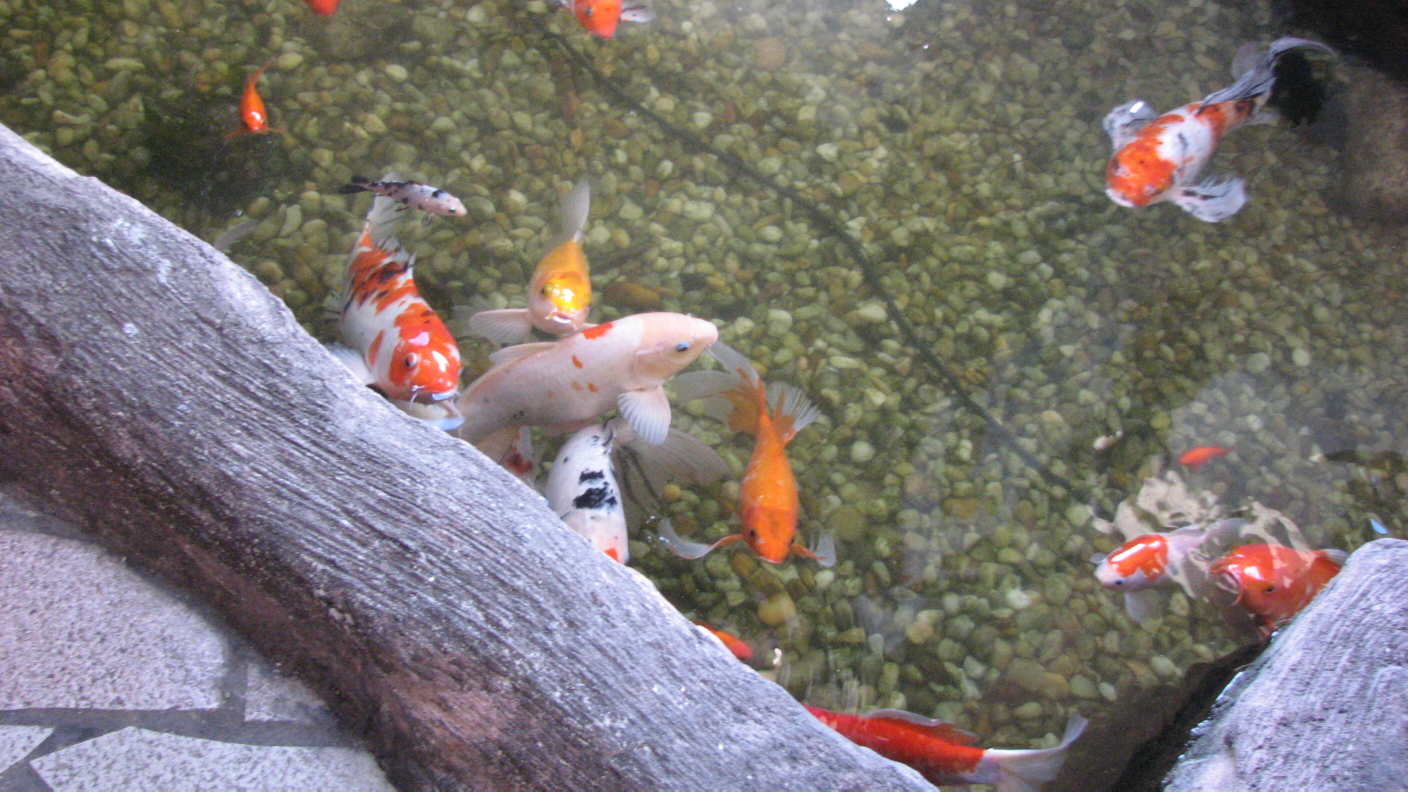Nishikigoi
Koi, or more specifically Nishikigoi, literally "brocaded carp", are ornamental domesticated varieties of the common carp Cyprinus carpio. The word "Koi" comes from Japanese, simply meaning "carp." It includes both the dull gray fish and the brightly colored varieties. A homophone of koi means "love, affection" and Koi are therefore symbols of love and friendship in Japan: a good example is the short story Koi-san by Mukoda Kuniko.
The common carp is widely believed to have originated from the Caspian Sea. Carp with color mutations were found in China. However, the earliest records of carp with distinct colors kept for selective breeding, true Nishikigoi, have been found in Japan. Koi have many different colors. Some of the major colors are white, black, red, yellow, blue, and cream.
The common carp is a hardy fish, and koi retain that durability. Koi are cold-water fish, but benefit from being kept in the 15-25 degrees C (59-77 degrees F) range and do not react well to long cold winter temperatures. Their immune system 'turns off' below 10 degrees C. Koi ponds have a meter or more of depth in areas of the world that become warm during the summer. In areas that have harsh winters, ponds that are a minimum of 1.5 meters (4 1/2 feet) are most common. Obviously, this pond found outdoor of an "All You Can Eat" buffet does not know of the fish requirements! It is too shallow. Luckily, cold nights in Miami are relatively rare. If I were these fish, I would want to migrate. It's too shallow!


No comments:
Post a Comment